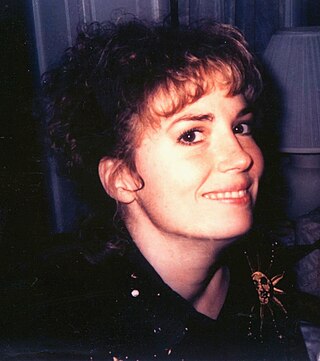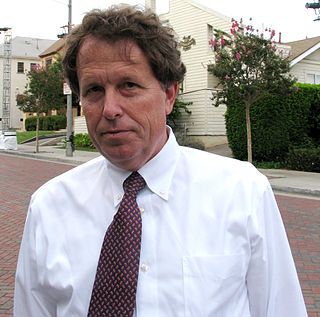
The Church of Scientology maintains a wide variety of beliefs and practices. The core belief holds that a human is an immortal, spiritual being (thetan) that is resident in a physical body. The thetan has had innumerable past lives, some of which, preceding the thetan's arrival on Earth, were lived in extraterrestrial cultures. Based on case studies at advanced levels, it is predicted that any Scientologist undergoing auditing will eventually come across and recount a common series of past-life events.

Since its inception in 1954, the Church of Scientology has been involved in a number of controversies, including its stance on psychiatry, Scientology's legitimacy as a religion, the Church's aggressive attitude in dealing with its perceived enemies and critics, allegations of mistreatment of members, and predatory financial practices; for example, the high cost of religious training:191 and perceived exploitative practices. When mainstream media outlets have reported alleged abuses, representatives of the church have tended to deny such allegations.

The Fishman Affidavit is a set of court documents submitted by self-professed ex-Scientologist Steven Fishman in 1993 in the federal case, Church of Scientology International v. Fishman and Geertz (Case No. CV 91-6426.

Jennifer Mary Elfman is an American actress. She is best known for her leading role as Dharma on the ABC sitcom Dharma & Greg (1997–2002), for which she received the Golden Globe Award for Best Actress – Television Series Musical or Comedy in 1999, and three nominations for the Primetime Emmy Award for Outstanding Lead Actress in a Comedy Series. After making her film debut in Grosse Pointe Blank (1997), she has appeared in Krippendorf's Tribe (1998), Dr. Dolittle (1998), EDtv (1999), Keeping the Faith (2000), Town & Country (2001), Looney Tunes: Back in Action (2003), Clifford's Really Big Movie (2004), and Big Stone Gap (2014).

David Miscavige is the second and current leader of the Church of Scientology. His official title within the organization is Chairman of the Board of the Religious Technology Center (RTC), a corporation that controls the trademarks and copyrights of Dianetics and Scientology. He is also referred to within the Scientology organization as "DM", "C.O.B." or "Captain of the Sea Org".

The term fair game is used to describe policies and practices carried out by the Church of Scientology towards people and groups it perceives as its enemies. Founder of Scientology, L. Ron Hubbard, established the policy in the 1950s, in response to criticism both from within and outside his organization. Individuals or groups who are "fair game" are judged to be a threat to the Church and, according to the policy, can be punished and harassed using any and all means possible. In 1968, Hubbard officially canceled use of the term "fair game" because of negative public relations it caused, although the Church's aggressive response to criticism continued.
The Way to Happiness is a 1980 booklet written by science-fiction author and Scientology founder L. Ron Hubbard listing 21 moral precepts. The booklet is distributed by The Way to Happiness Foundation International, a Scientology-related nonprofit organization founded in 1984.

The Church of Scientology is a group of interconnected corporate entities and other organizations devoted to the practice, administration and dissemination of Scientology, which is variously defined as a cult, a business, or a new religious movement. The movement has been the subject of a number of controversies, and the Church of Scientology has been described by government inquiries, international parliamentary bodies, scholars, law lords, and numerous superior court judgements as both a dangerous cult and a manipulative profit-making business. In 1979, several executives of the organization were convicted and imprisoned for multiple offenses by a U.S. Federal Court. The Church of Scientology itself was convicted of fraud by a French court in 2009, a decision upheld by the supreme Court of Cassation in 2013. The German government classifies Scientology as an unconstitutional sect. In France, it has been classified as a dangerous cult. In some countries, it has attained legal recognition as a religion.

Since the founding of the Church of Scientology in 1954 by L. Ron Hubbard, the relationship between Scientology and psychiatry has been dominated by strong opposition by the organization against the medical specialty of psychiatry and of psychology with themes relating to this opposition occurring repeatedly throughout Scientology literature and doctrine. According to the Church of Scientology, psychiatry has a long history of improper and abusive care. The group's views have been disputed, criticized,and condemned by experts in the medical and scientific community and have been a source of public controversy.

Recruiting and retaining Scientologist celebrities and getting them to endorse Scientology to the public at large has been important to the Church of Scientology since its early days. The organization has had a written program governing celebrity recruitment since at least 1955, when L. Ron Hubbard created "Project Celebrity", offering rewards to Scientologists who recruited targeted celebrities. Early interested parties included former silent-screen star Gloria Swanson and jazz pianist Dave Brubeck. The Scientology organization has a particular interest in international focus on wealthy businesspeople and influencers to help promote its ideals. A Scientology policy letter of 1976 states that "rehabilitation of celebrities who are just beyond or just approaching their prime" enables the "rapid dissemination" of Scientology.

This is a Timeline of Scientology, particularly its foundation and development by author L. Ron Hubbard as well as general publications, articles, books and other milestones.

Elli Perkins was an American glass artist and a Scientologist who lived in western New York State, working as a senior auditor at the Church of Scientology branch in Buffalo.

Thomas William Davis is an American financial executive. From 2005 to 2011, Davis was head of external affairs and the chief spokesperson of the Church of Scientology International and Senior Vice President at the Church of Scientology Celebrity Centre International from the early 1990s. Between 2011 and 2013, Davis did not make any public appearances in the media. In June 2013, it was revealed that Davis and his wife had relocated from Gold Base in Riverside County, California, to Austin, Texas. He currently resides in Los Angeles.

Scientology and Me is a television documentary first broadcast on 14 May 2007 as part of the BBC's Panorama series. In it, reporter John Sweeney visited the United States to investigate whether the Church of Scientology was becoming more mainstream. The programme gained particular controversy before and during filming due to unresolved differences on content and approach between Sweeney's production team and Scientology members. Tommy Davis, the international spokesperson for Scientology, did not want the BBC to interview any detractors or perceived enemies of the church or include them in the documentary, and attempted to censor any references to Scientology as a "cult."
Wil Seabrook is a musician, singer, and songwriter from Morganton, North Carolina. He currently resides in Los Angeles, California.

Shawn Lonsdale was a videographer and prominent critic of the Church of Scientology. He resided in Clearwater, Florida, and regularly videotaped members of Scientology coming and going from church activities in Clearwater. Lonsdale had initially intended to do a photography project on homeless people in Clearwater, but after an experience at a City Council meeting, he began to research Scientology. Lonsdale got into an argument with a Scientologist at the City Council meeting, and the Scientologist followed him home and the next day Lonsdale observed a van waiting for two hours outside his home. After researching the Church of Scientology on critical websites, he decided to expose information about the organization. He established a website, and filmed video footage of Scientologists going about activities in Clearwater, and aired edited footage on a local Public-access television cable TV station. After getting into a physical altercation with a Scientologist while filming, the Scientologist was arrested and charged with misdemeanor battery, but was later released and the charges were dropped.

Kurt Weiland is a native of Austria and an executive in the Church of Scientology International. He is director of external affairs for the Church of Scientology's Office of Special Affairs, and Scientology's vice president of communications. He is a member of the organization's board of directors, and handles government, legal and public affairs for Scientology. He has often represented Scientology to the press as a media spokesman. Weiland works out of the Church of Scientology's offices in Los Angeles, California.

The Citizens Commission on Human Rights International (CCHR) is a nonprofit organization established in 1969 by the Church of Scientology and psychiatrist Thomas Szasz, headquartered in Los Angeles, California. Its stated mission is to "eradicate abuses committed under the guise of mental health and enact patient and consumer protections." Many critics regard it as a Scientology front group whose purpose is to push the organization's anti-psychiatric agenda.
Scientology in the United Kingdom is practised mainly within the Church of Scientology and its related groups which go under names including "Hubbard Academy of Personal Independence" and "Dianetics and Scientology Life Improvement Centre". The national headquarters, and former global headquarters, is Saint Hill Manor at East Grinstead, which for seven years was the home of L. Ron Hubbard, the pulp fiction author who created Scientology. In the 2021 census, there were 1,844 individuals in England and Wales who listed themselves as Scientologists in their census returns, almost half of which lived in the area around East Grinstead in West Sussex, which hosts the British Scientology Headquarters at Saint Hill Manor. This is a decline of just under a quarter since census day, 2011.

Kendrick Lichty Moxon is an American Scientology official and an attorney with the law firm Moxon & Kobrin. He practices in Los Angeles, California, and is a lead counsel for the Church of Scientology. Moxon received a B.A. from American University in 1972, and a J.D. degree from George Mason University in 1981. He was admitted to the Washington, D.C. bar association in 1984, and the State Bar of California in 1987. Moxon's early work for the Church of Scientology involved legal affairs, and he also held the title of "reverend". He worked out of the Scientology intelligence agency known as the Guardian's Office (GO), and was named as an unindicted co-conspirator after the Federal Bureau of Investigation's investigation into criminal activities by Scientology operatives called "Operation Snow White". An evidence stipulation in the case signed by both parties stated he had provided false handwriting samples to the FBI; Moxon has since said that he did not "knowingly supply" false handwriting samples.
















